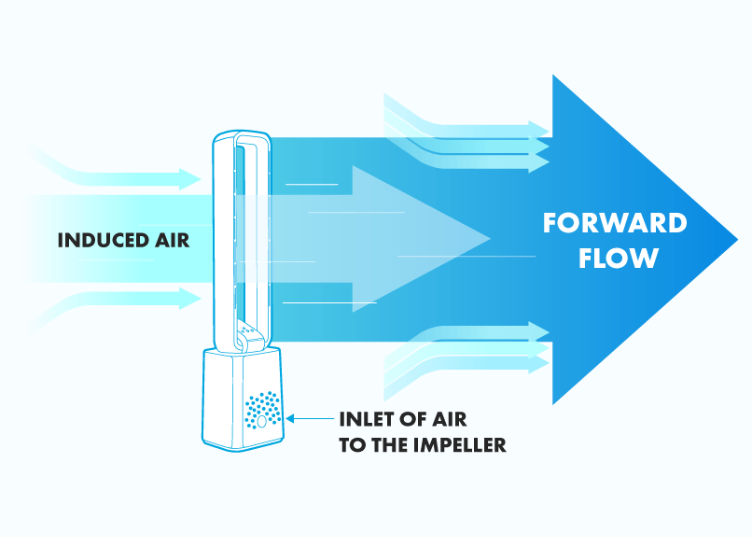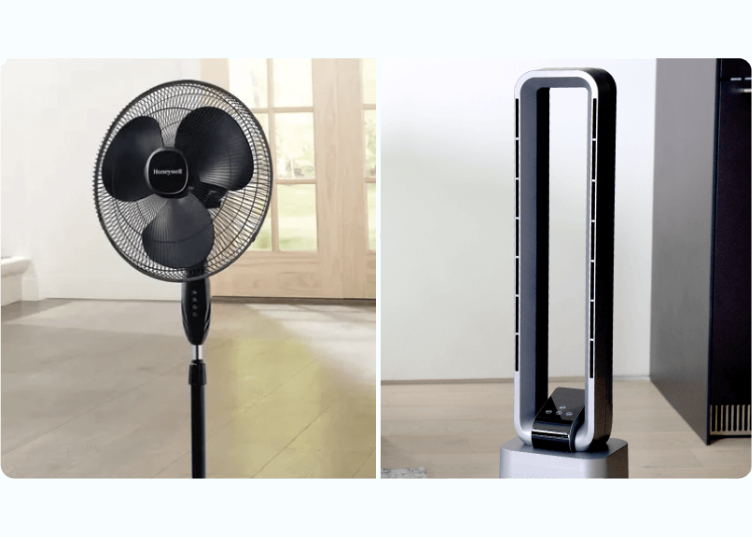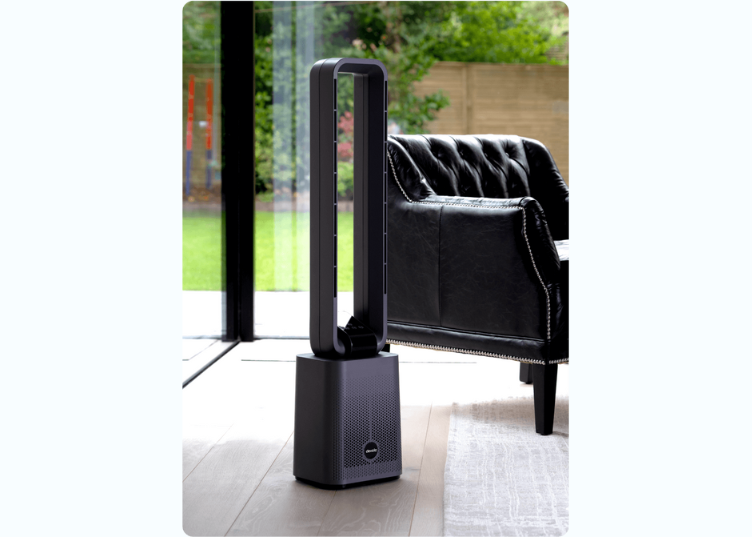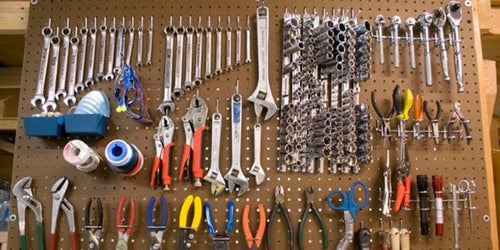How Does a Bladeless Fan Work? Understanding Air Multiplier Technology
Dyson Air Multiplier, a fan with no visible blades, was introduced to the market by James Dyson's consumer electronics company - well-known for its vacuum cleaner line - in October 2009. It looked like a shallow circular tube mounted on a pedestal.
Imagine a device that can create a refreshing breeze without any visible fan blades. It may seem surprising, but these devices exist! Even though there are no moving parts in sight, when you turn them on, you can feel a gentle flow of air.
So, how do they work their magic? How can an open circle produce such a pleasant breeze? Let's find out!

What Is a Bladeless Fan?
A bladeless fan, also known as an air multiplier, is a revolutionary device that pulls in air and amplifies it into a smooth, continuous stream without the use of visible blades.
Key Benefits of a Bladeless Fan
- Noise reduction: Its design minimizes operational noise, making it ideal for homes and offices.
- Safety: The absence of exposed blades makes it a safer choice for families with children or pets.
- Versatility: Available in various sizes and designs to suit different environments and preferences.
How Does an Air Multiplier Work?
Get ready to be blown away by the science behind this fan! Although it may not have any blades, this fan uses a brushless electric motor to circulate air through a circular tube. As the air flows inside, it eventually reaches a small opening, creating a refreshing breeze that you can feel in front of the fan. It's a cool combination of science and electronics!
The Science Behind How Air Multipliers Work
Instead of using blades to circulate air around the room, bladeless fans use a sophisticated air multiplier technology that draws in air and then increases its velocity, creating an uninterrupted stream of smooth airflow. This airflow is then channelled through a small aperture and over an airfoil-shaped ramp, which causes the air to multiply as it leaves the fan at a high velocity.
Bladeless fans rely on a combination of engineering and technology to circulate air effectively:

Bladeless Fans: Quiet, Efficient Cooling for Homes and Offices
The result? Bladeless fans provide a cool, refreshing breeze with minimal noise and maximum energy efficiency. Thanks to their noise-reduction technology, you can now enjoy a peaceful sleep or work environment without the constant hum of a traditional fan. With scientists and engineers continuing to improve their designs, bladeless fans are sure to be a mainstay in homes and offices around the world.

Are Bladeless Fans Better Compared to Regular Fans?
Bladeless fans are usually quieter than pedestal fans with blades, and they can save more energy. Additionally, they are significantly easier to clean and less likely to cause harm to children's fingers.
Bladeless fans utilize air multiplier technology, which generates a smooth, continuous stream of air without the noisy whirring of blades. The absence of moving parts also means there is less mechanical friction, contributing to quieter operation.
In addition to their noise-reducing benefits, bladeless fans are more energy-efficient than their traditional counterparts. They can circulate air more effectively, often using less power to achieve the same cooling effect. This can result in lower energy bills and a smaller environmental footprint over time.

The Downside of Bladeless Fans
While bladeless fans offer numerous benefits, such as quieter operation and enhanced safety features, one notable downside is their higher price tag. As a relatively new and innovative technology, bladeless fans typically come with a premium cost compared to traditional fans with blades. This price difference is mainly due to the advanced engineering and design required to create the smooth, efficient airflow that makes bladeless fans stand out.
Despite the higher initial cost, many consumers find the investment worthwhile due to the long-term benefits, including energy efficiency, safety, and ease of maintenance. However, it's important for buyers to weigh these advantages against the upfront cost to determine if a bladeless fan fits their budget and needs.
There you have it! Now you know the science behind how a bladeless fan works. But the innovation doesn't stop there. Designers are constantly working to make these fans even more energy efficient, quieter, and exactly what consumers want in their homes.
Want to find out more? Explore our articles here:
Latest articles
-
 Top 10 Consumer Units of 2024
20/12/2024Explore the top 10 consumer units of 2024! Safe, reliable, and easy to...Read more
Top 10 Consumer Units of 2024
20/12/2024Explore the top 10 consumer units of 2024! Safe, reliable, and easy to...Read more -
 How to Calculate HVAC Ducting
16/09/2024When designing and building a HVAC system, it’s important to make sure that...Read more
How to Calculate HVAC Ducting
16/09/2024When designing and building a HVAC system, it’s important to make sure that...Read more -
 Heating Buying Guide
16/09/2024There's truly nothing more lovely than sitting on the settee after a long...Read more
Heating Buying Guide
16/09/2024There's truly nothing more lovely than sitting on the settee after a long...Read more -
 Top Tips for Tool Maintenance
02/09/2024The importance of your tools shouldn’t be overlooked. Without them, so many tasks...Read more
Top Tips for Tool Maintenance
02/09/2024The importance of your tools shouldn’t be overlooked. Without them, so many tasks...Read more




